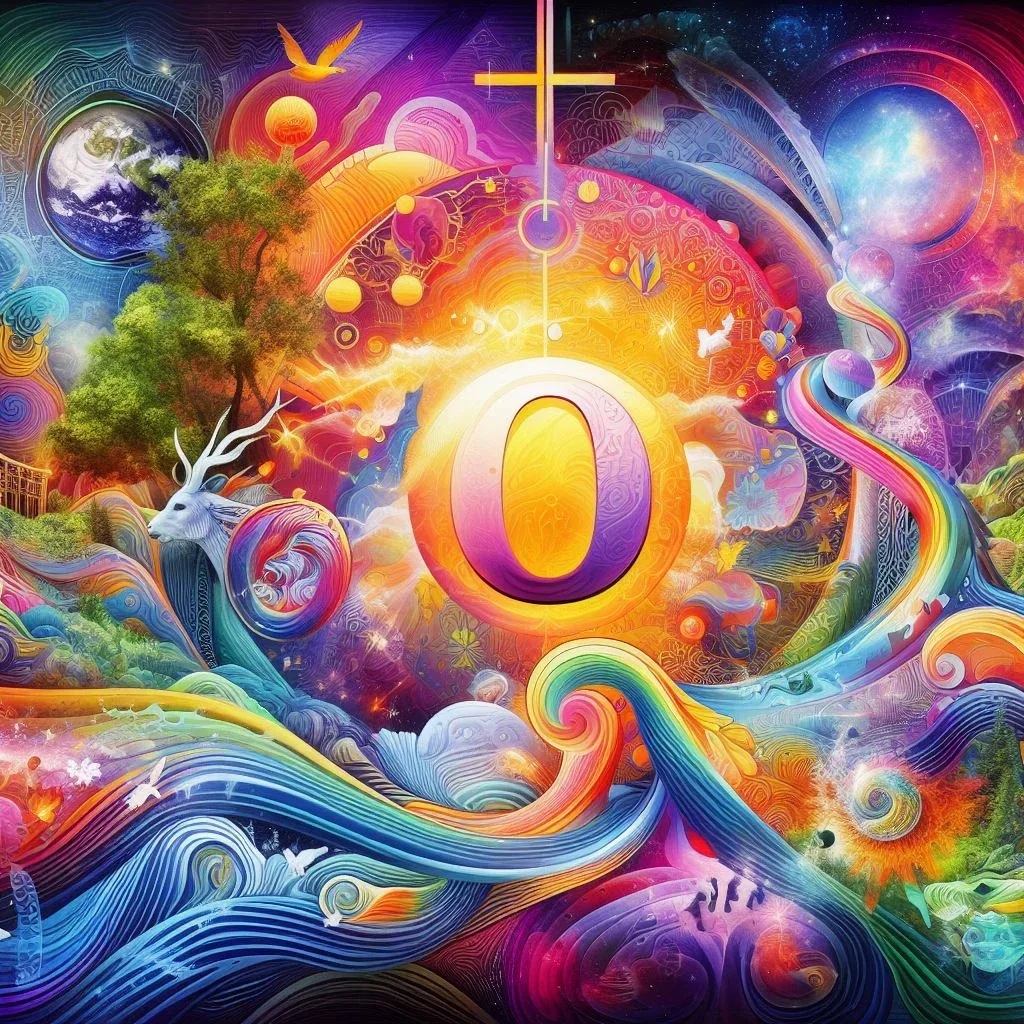Stoicism is an ancient philosophy with roots in Ancient Greece that emphasizes the pursuit of wisdom, virtue, and serenity. One of the fundamental questions the Stoics addressed was the nature of God. For the Stoics, God plays a crucial role in philosophy, but their understanding differs considerably from most traditional religious conceptions. In this article, we will explore what God is to the Stoics and how this view fits into their philosophy.

God in Stoic Philosophy
The Stoics had a unique, philosophical conception of God. His vision was deeply influenced by his philosophy and his understanding of nature and the universe. Here are the main aspects of the Stoic view of God:
1. Pantheism
The Stoics were pantheists, meaning they believed that God and the universe were the same thing. For them, God was not a separate entity that existed outside the cosmos, but rather the very substance of the universe. This reflects the idea that everything that exists is part of a divine order and inherent to the universe.
2. Cosmic Reason
The Stoics saw God as the cosmic reason that permeates the universe. This reason is responsible for the order, balance and harmony observed in nature. For them, divine reason was the underlying cause of everything that happens in the world.
3. Divine Providence
The Stoics believed that God was provident, that is, that he actively cared for the universe and its inhabitants. This does not mean that God granted individual requests, but rather that he maintained order and harmony in the universe as a whole.
4. Destiny and Acceptance
One of the central beliefs of the Stoics was the acceptance of fate. They believed that everything that happens in the universe is guided by divine providence and therefore must be accepted serenely. This includes accepting both pleasant events and adversity as part of God's will.
God as a Philosophical Concept
It is important to note that the Stoics' view of God was more of a philosophical concept than a traditional religious belief. They did not worship God in temples or churches, nor did they perform religious rituals in his name. Instead, his approach was more contemplative and rational.

The Stoics saw the study of philosophy as a way to get closer to God, as they believed that philosophy allowed human beings to understand the divine order that permeates the universe. The pursuit of wisdom and virtue was seen as a way to align with God's will and live in accordance with nature.
The Importance of God in Stoic Philosophy
God plays a fundamental role in Stoic philosophy and is intrinsic to many of its tenets. Here are some of the ways God is important to the Stoics:

1. Moral Guidance
Belief in divine providence and cosmic order was the basis for Stoic moral principles. They believed that living in accordance with nature, that is, with divine order, was the key to a virtuous life.
2. Acceptance of Fate
The calm acceptance of fate, which is a fundamental part of Stoic philosophy, was linked to the belief in divine providence. The Stoics believed that accepting what cannot be changed was a way of aligning oneself with God's will.
3. Virtue
The pursuit of virtue, another cornerstone of Stoicism, was related to the idea that living in accordance with divine reason was the path to moral excellence. The Stoics believed that virtue was the highest achievement one could aspire to.
4. Equanimity
The understanding of God as cosmic reason and divine providence was also linked to the Stoics' emphasis on serenity and emotional balance. They believed that by accepting the divine order of the universe, people could achieve lasting inner peace.
Conclusion
For the Stoics, God was much more than a divine entity in a religious sense. His vision was deeply philosophical and centered on the understanding of order, cosmic reason and the divine providence that permeates the universe. God played a central role in the Stoics' ethics, morality, and pursuit of wisdom, providing a basis for many of their fundamental principles.
Although the Stoics' view of God may differ from traditional religious conceptions, it offers a unique perspective on the relationship between philosophy and spirituality. The understanding of God as cosmic reason and divine order continues to be one of the most fascinating aspects of Stoic philosophy.
FAQ about What is God for the Stoics?
In this FAQ, we will answer the main questions related to the Stoics' view of God, as presented in the article.

1. Who were the Stoics and how did their philosophy influence their view of God?
The Stoics were followers of the Stoic school of philosophy, which originated in Ancient Greece and had significant influence during the Roman Empire. His view of God was deeply influenced by his philosophy, which emphasized virtue, wisdom, and acceptance of destiny as fundamental values.
2. What does pantheism mean in the Stoics' view of God?
Pantheism is the belief that God and the universe are one and the same. For the Stoics, God was not a separate entity, but the very substance of the universe. This reflected his view that everything that exists is part of a divine order inherent in the universe.
3. How did the Stoics understand cosmic reason?
The Stoics saw God as the cosmic reason that permeates the universe. This reason is responsible for the order, balance and harmony observed in nature. They believed that divine reason was the underlying cause of everything that happens in the world.
4. What does divine providence mean in Stoic philosophy?
Divine providence, for the Stoics, was the belief that God actively cared for the universe and its inhabitants. This did not mean that God granted individual requests, but rather that he maintained order and harmony in the universe as a whole.
5. How did the Stoics apply their view of God to their ethics and morals?
The Stoics believed that living in accordance with divine order and cosmic reason was the key to a virtuous life. They sought virtue as the highest achievement and the acceptance of destiny as part of God's will.
6. How did the Stoics' view of God differ from traditional religious views?
The Stoics' view of God was more philosophical than religious. They did not worship God in temples or churches, nor did they perform religious rituals. His approach was contemplative and rational, focused on the study of philosophy as a means of approaching God.
We hope this FAQ has clarified your main questions about the Stoics' view of God and how it fits into their unique philosophy.





